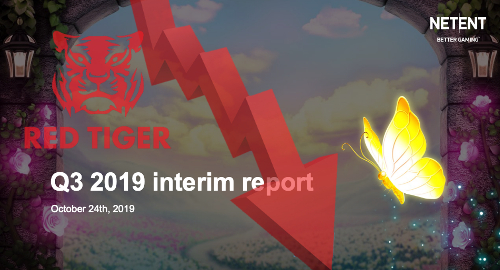 Online gambling technology provider NetEnt saw its Q3 profits slide due to ongoing regulatory headwinds in Sweden and some other major markets.
Online gambling technology provider NetEnt saw its Q3 profits slide due to ongoing regulatory headwinds in Sweden and some other major markets.
Figures released last week show the Stockholm-listed NetEnt generated revenue of SEK443m (US$45.6m) in the three months ending September 30, down SEK6m from the same period last year. But earnings fell 13.6% to SEK196m and after-tax profit plunged 37.4% to SEK97m.
Those declines would have been much worse were it not for NetEnt’s recent acquisition of online slots supplier Red Tiger Gaming, which was formally absorbed into NetEnt’s operations at the beginning of September and supplied revenue of SEK30m and earnings of SEK20m to NetEnt’s Q3 results.
NetEnt CEO Therese Hillman didn’t mince words, saying the company “continued to see a challenging situation in some of our larger markets” in Q3. Excluding Red Tiger’s operations, locally regulated markets accounted for 47% of NetEnt’s revenue in Q3, up 12 points from Q3 2018.
As with previous results, Hillman pointed to “continued weak developments” in Sweden’s new regulated gambling market that accounted for 7% of the revenue decline, but there was also an unquantified “negative impact” from operations in Italy (advertising curbs), Norway (payment blocking) and the UK (er, everything).
On the plus side, Hillman celebrated NetEnt’s “great start” in Pennsylvania’s online gambling market and “continued strong growth” in New Jersey. NetEnt released eight slots titles during Q3, while Red Tiger contributed another four in September. NetEnt plans to roll out Red Tiger game content to all NetEnt’s B2B clients that have yet to launch the products.
NetEnt’s share price plunged nearly one-fifth to SEK26.25 following the release of its Q3 report, and the shares have so far managed only a partial recovery, closing out Monday’s trading up 1.25% to SEK28.25. That said, certain individuals prefer to see NetEnt’s current struggles as a buying opportunity, provided you’re not looking for any meaningful returns in the short-term.